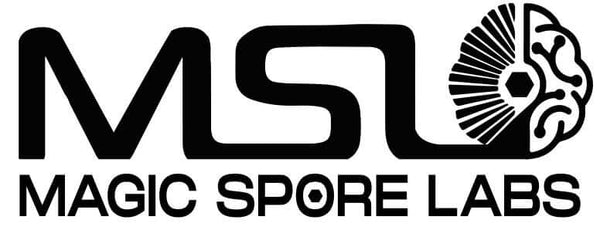
Lab Quality Spores: What Sets Them Apart and How to Identify Them
Share
The study of fungi, spores play a crucial role. They are akin to seeds in the plant kingdom, bearing the potential for new fungal life. However, not all spores are created equal, especially when it comes to scientific research and applications. This is where lab quality spores shine, setting a benchmark for purity, viability, and genetic integrity. If you've ever wondered what makes lab quality spores stand apart and how you can identify them, you're in for a treat. In this article, we'll dive deep into the heart of spore science, armed with spore tips and tricks to navigate this microscopic world.
The Significance of Lab Quality Spores
Lab quality spores are meticulously prepared under controlled conditions to ensure they meet the highest standards of quality. These spores are free from contaminants, such as bacteria and molds, which could interfere with scientific studies. The significance of using lab quality spores cannot be overstated in research and educational settings. They provide a consistent and reliable basis for experiments, contributing to reproducible results and groundbreaking discoveries.
Purity Is Key
One of the hallmark traits of lab quality spores is their purity. But how can one ascertain this purity? It begins with the source. Reputable suppliers of lab quality spores adhere to stringent protocols, including the use of sterile equipment and environments to harvest and package spores. This meticulous process minimizes the risk of contamination, ensuring that the spores you receive are as pure as possible.
Viability Matters
Another critical factor that sets lab quality spores apart is their viability. Viability refers to the spores' ability to germinate under suitable conditions. High viability is a testament to the freshness and genetic integrity of the spores. Suppliers often perform viability tests, such as germination studies, to ensure that their spores are capable of thriving. When sourcing spores, look for suppliers who openly share information about their testing methods and viability rates.
Genetic Integrity
For researchers and enthusiasts alike, the genetic integrity of spores is paramount. Lab quality spores are selected and preserved to maintain their genetic makeup, ensuring that they are true to their species or strain. This is particularly important for studies focusing on genetic traits, evolution, and biodiversity. To identify spores of high genetic integrity, seek out suppliers who specialize in lab quality spores and have a reputation for excellence in the mycology community.

Packaging and Storage
The way spores are packaged and stored also plays a crucial role in maintaining their quality. Lab quality spores are typically sealed in airtight, sterilized containers to protect them from moisture, light, and temperature fluctuations. Proper storage extends the shelf life of spores, preserving their viability and purity. When examining spore products, pay attention to the packaging details and storage recommendations provided by the supplier.
Transparency and Documentation
Trustworthy suppliers of lab quality spores are transparent about their processes and provide comprehensive documentation for their products. This may include certificates of analysis, test results, and detailed product descriptions. Documentation is your assurance of quality, offering a clear insight into the spores' origin, preparation, and testing. Don't hesitate to ask suppliers for this information; it's your right as a consumer to be informed.
Engaging with the Community
Finally, one of the most effective ways to identify lab quality spores is to engage with the mycology community. Forums, social media groups, and scientific publications are excellent resources for learning from the experiences of others. Whether you're a seasoned researcher or a curious novice, the mycology community can offer valuable insights, reviews, and recommendations on where to find the best lab quality spores.
In conclusion, lab quality spores represent the pinnacle of purity, viability, and genetic integrity in the realm of mycology. Identifying and sourcing these spores requires a keen eye for detail, an understanding of the science behind spore production, and a willingness to engage with the broader mycology community. Armed with these spore tips and tricks, you're well on your way to exploring the microscopic world of fungi with confidence and curiosity. Remember, the pursuit of knowledge is a journey best undertaken with the highest quality tools at your disposal, and lab quality spores are undoubtedly among the most essential in the field of mycology.
